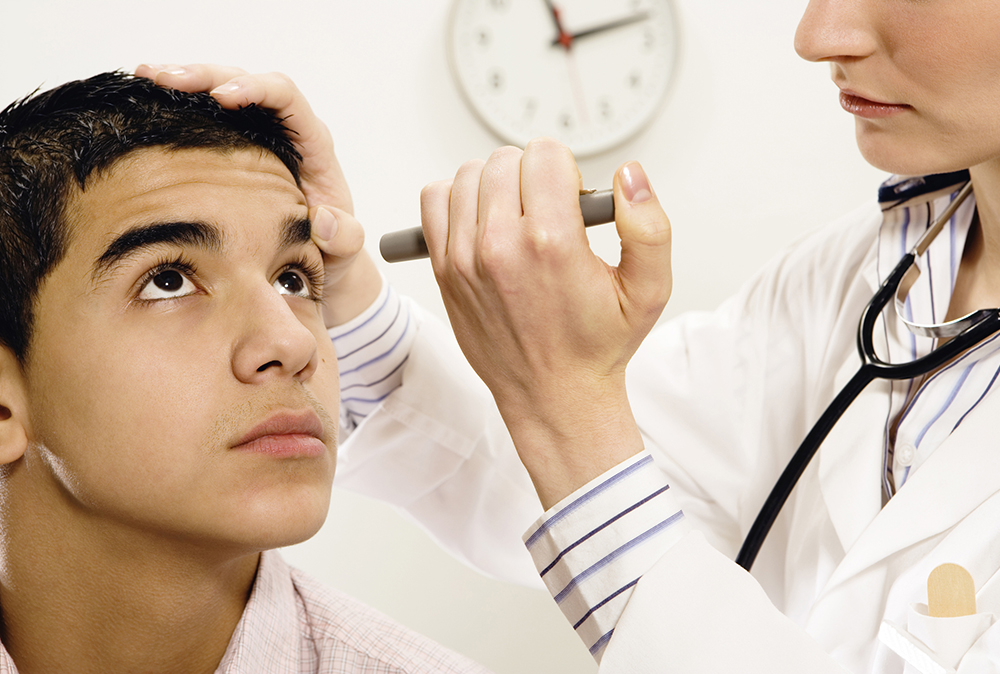Wednesday, October 18, 2023
Why Concussion Baseline Testing is a Game-Changer for Youth Athletes
Often referred to as "invisible injuries," concussions can have long-term effects on a person’s cognitive and physical well-being. When it comes to early detection and effective management, concussion baseline testing is a trusted tool, particularly for young athletes.
Nicholas Belasco, DO, Board Certified Sports Medicine specialist and Director of the Concussion Management and Rehabilitation Program at WMCHealth’s Bon Secours Medical Group, unpacks what parents and school-aged athletes need to know.

Concussion Baseline Testing 101: What Is It?
“Concussion baseline testing is an evaluation process used to establish a baseline of a person’s cognitive and physical functioning while they are in good health,” explains Dr. Belasco. “This baseline data serves as a reference point for comparison in the event of a suspected concussion.”
There are multiple steps involved in baseline testing — here’s how it typically works:
 |
| Nicholas Belasco, DO |
- Pre-Injury Assessment: Before a student-athlete begins their sports season, they should undergo a series of assessments. These assessments typically include cognitive tests, balance tests and sometimes vision and reaction time tests. “The type and depth of testing depends largely on where student-athletes receive the test,” says Dr. Belasco. “Schools, for instance, tend to rely on cognitive tests, whereas sports medicine specialists have the in-office resources and capacity to conduct balance and eye movement assessments, as well.”
- Cognitive Testing: Cognitive tests assess factors like memory, attention, problem-solving abilities, processing speed and reaction time. One commonly used cognitive test is the ImPACT (Immediate Post-Concussion Assessment and Cognitive Testing) test, which is often administered on a computer.
- Balance Testing: Balance tests evaluate a person’s ability to maintain stability and equilibrium. They may involve tasks like standing on one leg or maintaining balance on a specialized device. “I’d love to see schools, in particular, put more emphasis on balance-based methods,” notes Dr. Belasco. “Evidence shows that even when youth athletes feel like they’ve recovered from a concussion and no longer exhibit symptoms—no headaches, no dizziness, they’re doing fine in school — their balance still often remains disrupted, which can potentially lead to future sports injuries down the road.”
- Vision and Reaction Time Testing: Some baseline tests also include assessments of vision and reaction time, as these can be affected by concussions.
- Post-Injury Comparison: The results of these baseline tests are recorded and stored for future reference. If the person sustains a head injury, such as a concussion, a healthcare professional can re-administer the same tests. The results are then compared to the baseline data to assess whether there are significant changes in cognitive function, balance, eye tracking or other areas.
For optimal accuracy, baseline testing is ideally conducted a month or two before the sports season begins. This ensures the data collected reflects the most accurate representation of the athlete's capabilities; however, there are constraints in repeating testing too soon after a concussion. “I always caution youth athletes against retesting until at least one month has passed since the last recovery, as early testing can yield skewed data,” says Dr. Belasco.
Effective concussion management involves collaboration between schools, colleges and medical professionals. Dr. Belasco underscores the importance of a top-down approach, with engaged coaches and athletic directors leading the charge. “I encourage anyone involved in youth athletics to tap into the expertise offered by WMCHealth’s sports medicine specialists to ensure all student-athletes maintain safety and peak performance throughout the sports season.”
To learn more about our community-based, mission-focused program, including how to deploy and implement concussion baseline testing in your school or private sports club, call our office at 845.291.0966 for a free consultation.